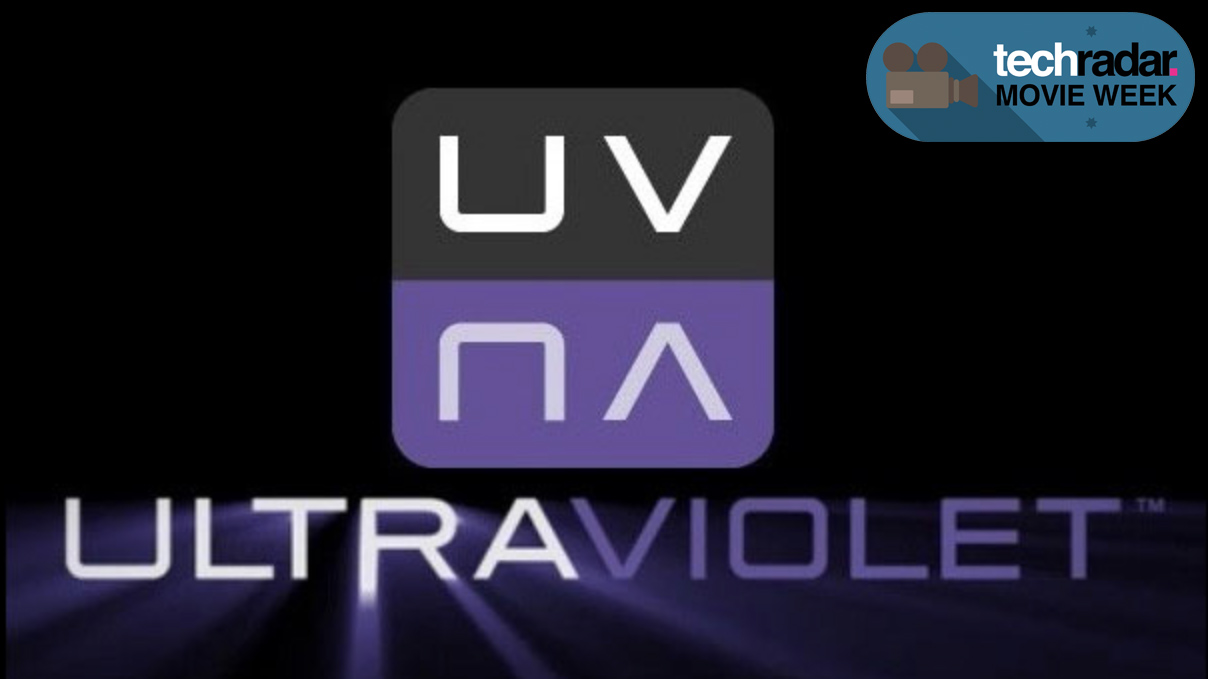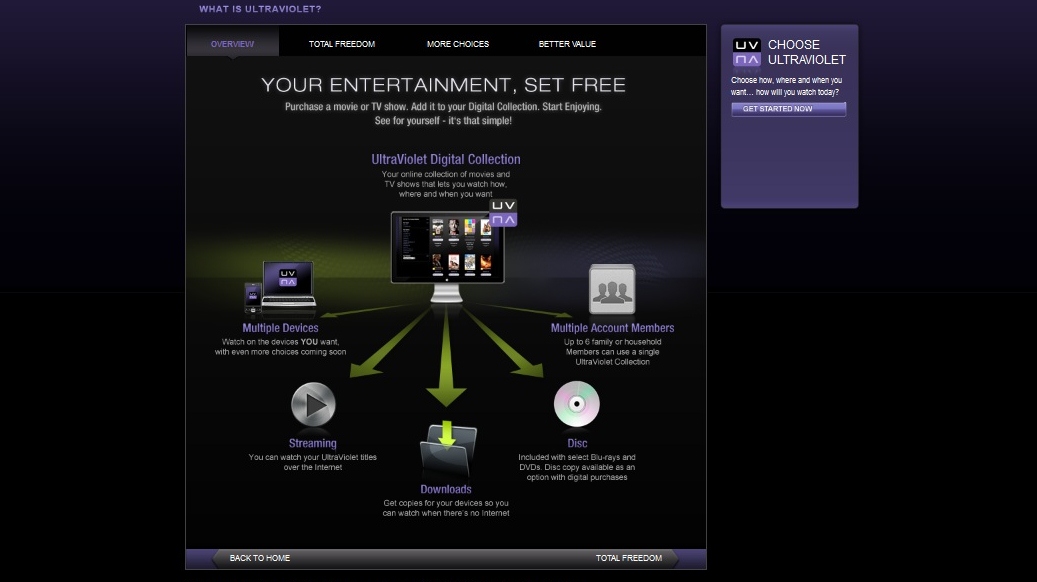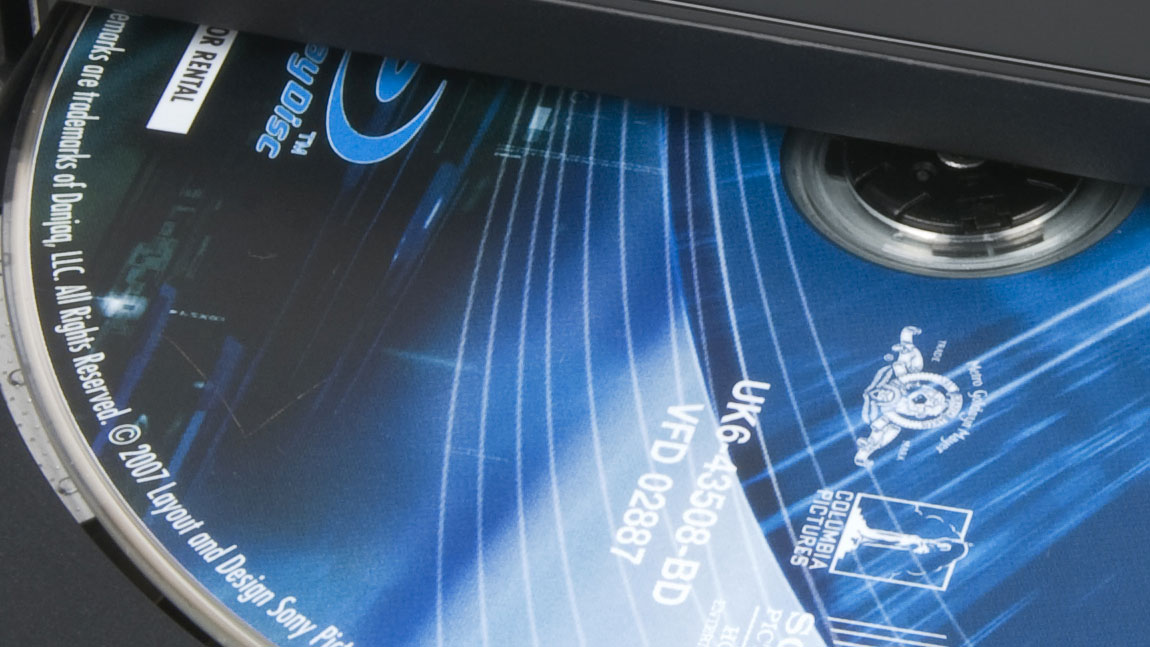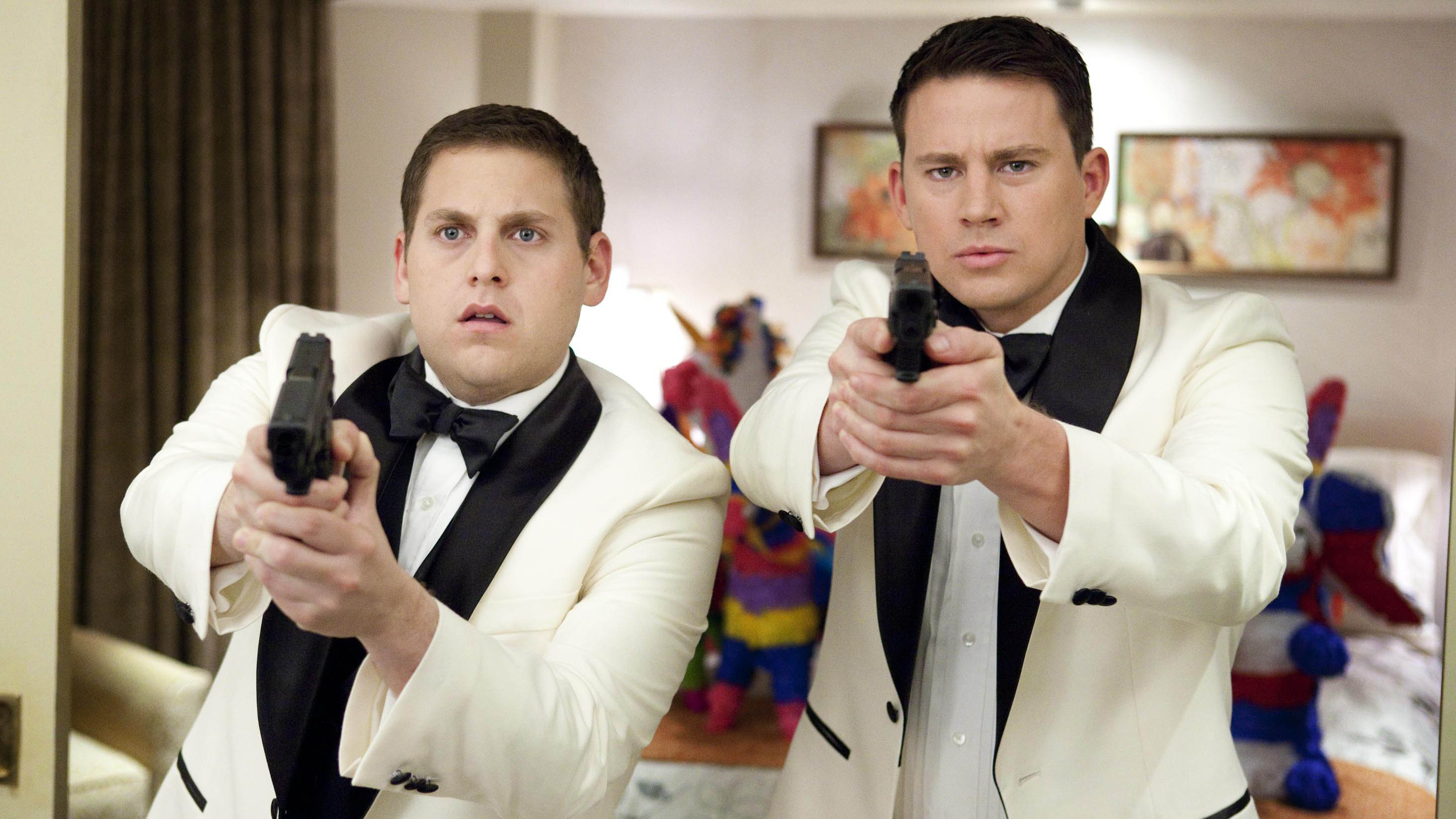UltraViolet: what you need to know
The digital locker system laid bare

When it comes to the home, the movie industry is in a state of flux. No longer is the business model as simple as cinema first, disc second; there's now a myriad of ways consumers can get their film fix from the sofa.
Hollywood hasn't exactly been quick in offering consumers a 'one size fits all' approach to their movie buying needs but that's slowly changing with the introduction of UltraViolet. It's a service that has the backing of 75 companies, with the hope that it will become the main method for consumers to own a movie.
All these companies come under the umbrella of the DECE (Digital Entertainment Content Ecosystem) consortium.
The problem is: the idea has been around for some time. And we all know that something that's been mulled over for a long time is usually a sign that things are, well, problematic.
When it comes to UltraViolet, however, the idea is sound. But it's a long way from being a perfect execution.
At its heart, UltraViolet is a simple digital locker system. Sign up to the service – it's free – and you will be able to access the movies you buy on a variety of devices.
From disc to digital
Interestingly, the idea is not to push people away from discs and onto downloads. Blu-rays and DVDs are very much part of the UltraViolet ecosystem – even if you don't buy a disc and just go down the road of just purchasing a digital copy, UV allows you to burn that content to disc without fear you are breaking any copyright laws.
Sign up for breaking news, reviews, opinion, top tech deals, and more.
This disc acts as a ticket to the license of the movie you have purchased, so you can view it anywhere and on any device, obviously with a number of caveats.

Currently, all but one of the major movie studios is behind the concept of Ultraviolet. The distributor which has not signed up is Disney. It has its own digital keychest called 'Disney Movies Anywhere' that's an alternative system to what Ultraviolet offers.
The movie distributors backing UltraViolet:
- Warner Bros
- Paramount Pictures
- Sony Pictures
- Lionsgate
- Roadshow Entertainment
- Twentieth Century Fox
- NBC Universal
- BBC Worldwide
How does it work?
UltraViolet works in a similar way as Digital Copy used to. You buy a Blu-ray or DVD with the UV symbol and from the disc you can access that content online.
That's because you get a digital proof of purchase that you can add to your account. Once this is linked with the account, you have access to the digital stream and a download. You can have up to five people on the account but there is a limit to how many streams you can have going at once.

As this is trying to combat piracy, UltraViolet gives you the ability to stream three things at the same time and there may well be territorial restrictions to what you can stream where.
UV is letting distributors decide how many times you can download content, meaning this differs between different releases.
Unfortunately you're not able to buy other people's unused codes. eBay has banned the practice, and other second hand sellers have done similarly. There are still some sites around that allow their sale, but you always run the risk of someone else having used your code.
Getting a UV code for movies you already own that didn't come with a code is a bit tricky. In the USA certain Walmart stores will offer a disc-to-digital service that converts compatible movies to a Vudu copy for a nominal fee, but this isn't available for every movie, and we've not heard of any similar services for the UK.
UltraViolet will work with most smartphones and tablets and all you have to do is download an app but this is where it gets more than a little confusing.
Stream team
The app you need won't be strictly a UltraViolet app but instead whichever streaming service is linked to the place you bought the disc from.
So if it's Tesco in the UK, then you will get free streaming of the movie from BlinkBox. If you bought the disc from, say, the Dixons Group, you would have to stream the movie through Knowhow, its own service.
Other compatible apps include Vudu, CinemaNow, and Flixster.
All the retailers signing up UV have said that they will make it as clear as possible to the customer where they will get their content from – even if from the offset it sounds a tad confusing.
The DECE has likened this to the way you can get money from any bank. So, if you have a Barclaycard you can still go to a NatWest cash machine and so on.
All the movies are stored in the same digital locker, but each retailer has a different means of accessing them.
When you sign up to UV, BlinkBox, Knowhow and the like are meant to be your cash machines, spewing out digital copies of movies for you whenever you purchase a disc from them.

The final piece of the puzzle is the hardware you use to play your content on, and this differs depending on which streaming app you use.
If you use the Vudu app for example, then you'll be able to playback across Roku Devices, the Nvidia Shield, Google's Chromecast, a range of games consoles, and many more.
Other apps are also available as built-in apps with various TVs.
With so many different apps supporting Ultraviolet it would be impossible to list all the compatible devices here, but a majority of modern streaming devices is supported by at least one of the streaming services.

Marc Chacksfield is the Editor In Chief, Shortlist.com at DC Thomson. He started out life as a movie writer for numerous (now defunct) magazines and soon found himself online - editing a gaggle of gadget sites, including TechRadar, Digital Camera World and Tom's Guide UK. At Shortlist you'll find him mostly writing about movies and tech, so no change there then.